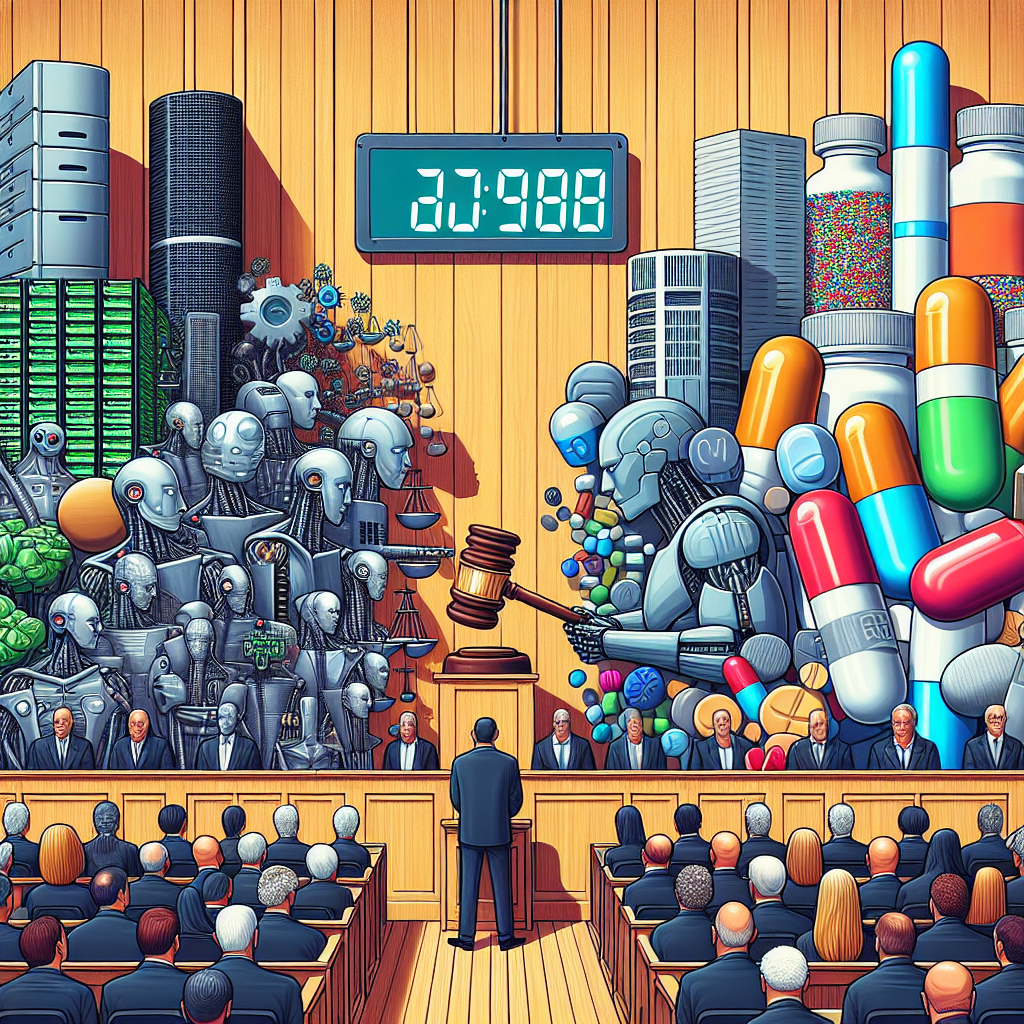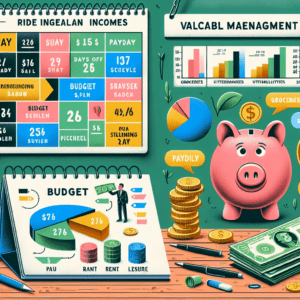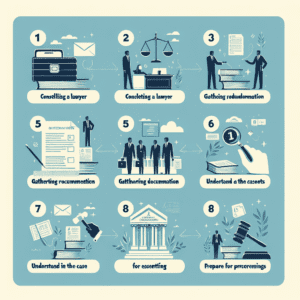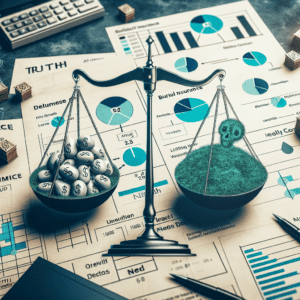“Exposing Corporate Giants: The Year’s Most Controversial Class Action Cases”
The Biggest Tech Lawsuits: How Major Companies Faced Class Action Battles
In recent years, major technology companies have increasingly found themselves at the center of high-profile class action lawsuits, facing allegations ranging from privacy violations to antitrust concerns. As digital platforms continue to expand their influence, legal challenges have emerged, questioning their business practices and the extent of their control over consumer data. This year has been no exception, with several landmark cases highlighting the growing scrutiny on tech giants and their operations.
One of the most significant class action lawsuits involved a major social media company accused of mishandling user data. Plaintiffs in the case alleged that the platform had failed to adequately protect personal information, allowing third parties to access sensitive user data without proper consent. This lawsuit followed previous controversies surrounding data privacy, reinforcing concerns about how tech companies collect, store, and share user information. As regulatory bodies worldwide push for stricter data protection laws, such legal battles underscore the ongoing tension between consumer rights and corporate data practices.
Similarly, another major lawsuit targeted a leading e-commerce platform, with allegations that the company engaged in anti-competitive behavior. The plaintiffs argued that the company’s marketplace policies unfairly favored its own products over those of third-party sellers, effectively stifling competition. This case reignited debates over the dominance of large technology firms and their ability to control market dynamics. As regulators continue to investigate monopolistic practices in the digital economy, such lawsuits serve as a reminder of the challenges in maintaining fair competition in an industry dominated by a few powerful players.
In addition to concerns over market competition, issues related to workplace conditions have also led to class action litigation against major tech firms. A prominent case this year involved employees of a leading technology company who alleged that they were subjected to unfair labor practices, including wage theft and discriminatory policies. The lawsuit brought attention to the treatment of workers in the tech industry, particularly those in contract or gig-based roles. As discussions around labor rights gain momentum, these legal battles highlight the broader implications of employment policies within the sector.
Another major lawsuit focused on the use of artificial intelligence and its potential biases. A group of plaintiffs filed a class action suit against a well-known technology company, claiming that its AI-driven hiring system disproportionately disadvantaged certain demographic groups. This case raised important questions about the ethical implications of AI in decision-making processes and the responsibility of tech companies to ensure fairness in their algorithms. As artificial intelligence continues to shape various aspects of society, legal challenges like this one emphasize the need for greater transparency and accountability in its deployment.
While these lawsuits have significant financial implications for the companies involved, they also reflect broader societal concerns about the role of technology in everyday life. As consumers become more aware of their rights and regulatory bodies intensify their oversight, tech giants are likely to face continued legal scrutiny. The outcomes of these cases could set important precedents for the industry, influencing future policies and corporate practices. Ultimately, these class action battles serve as a critical reminder of the evolving relationship between technology, regulation, and consumer protection in an increasingly digital world.
Big Pharma Under Fire: Controversial Class Action Cases Shaping the Industry
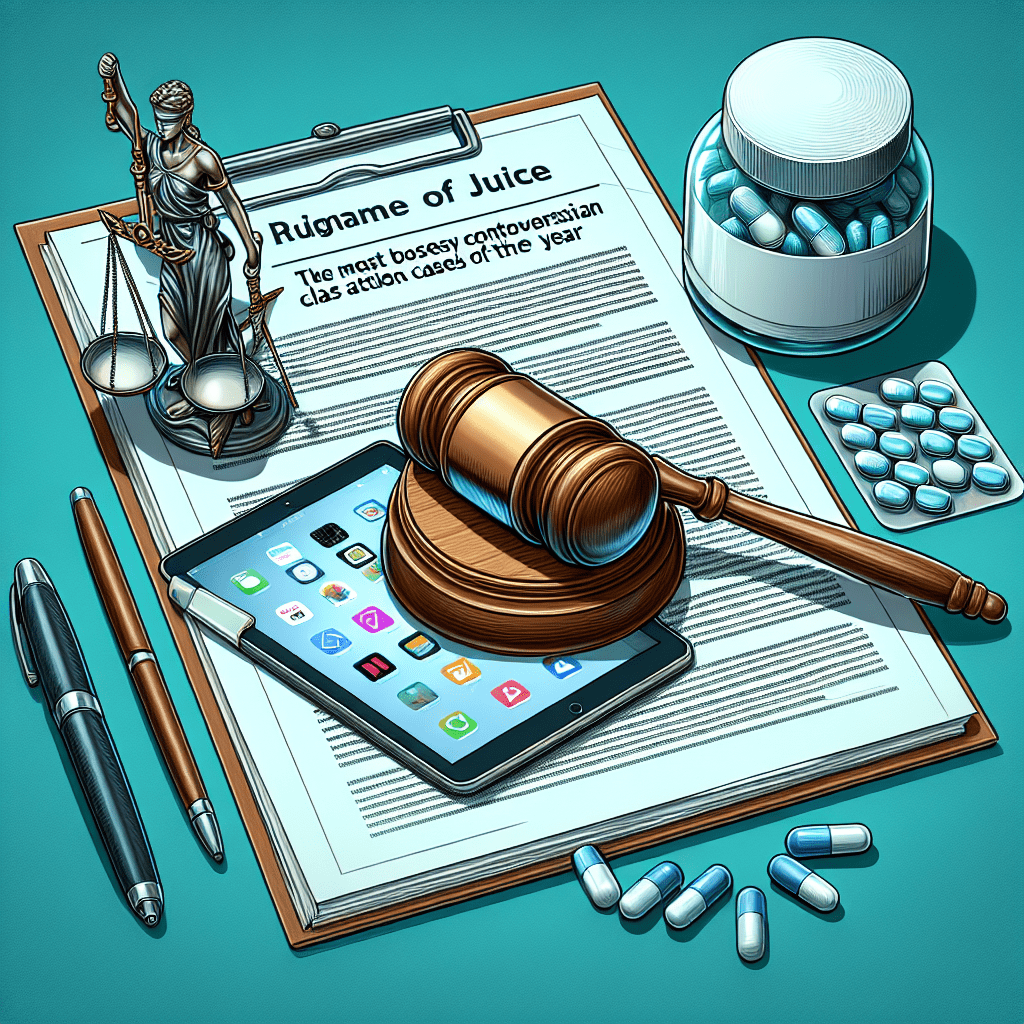
In recent years, the pharmaceutical industry has faced increasing scrutiny as consumers, advocacy groups, and regulatory bodies challenge the practices of some of the world’s largest drug manufacturers. This year has been no exception, with several high-profile class action lawsuits bringing attention to issues such as drug pricing, misleading marketing, and the alleged concealment of harmful side effects. These legal battles not only highlight the growing concerns surrounding Big Pharma but also raise important questions about corporate accountability and consumer protection.
One of the most significant class action cases of the year involves allegations of price-fixing among major pharmaceutical companies. Plaintiffs in this lawsuit argue that several drug manufacturers colluded to artificially inflate the prices of essential medications, making them unaffordable for many patients. This case has drawn widespread attention, as it underscores the broader issue of rising prescription drug costs and the financial burden placed on consumers. If the allegations are proven true, the implications could be far-reaching, potentially leading to stricter regulations and increased oversight of drug pricing practices.
In addition to concerns over pricing, another major lawsuit has focused on the marketing tactics used by pharmaceutical companies to promote their products. In this case, plaintiffs claim that a leading drug manufacturer misrepresented the safety and efficacy of a widely prescribed medication, leading to severe health complications for thousands of patients. The lawsuit alleges that the company failed to disclose known risks associated with the drug, prioritizing profits over patient safety. As the case unfolds, it has reignited debates over the ethical responsibilities of pharmaceutical companies and the need for greater transparency in drug marketing.
Beyond pricing and marketing controversies, another class action lawsuit has brought attention to the issue of defective medications and medical devices. In this instance, a group of patients has taken legal action against a pharmaceutical company, alleging that a specific drug caused serious and unforeseen side effects. The plaintiffs argue that the company was aware of these risks but failed to provide adequate warnings to healthcare providers and consumers. This case has raised concerns about the drug approval process and whether current regulatory frameworks are sufficient to protect public health. If the lawsuit results in a substantial settlement or verdict, it could set a precedent for future cases involving defective pharmaceutical products.
While these lawsuits have placed Big Pharma under intense scrutiny, they have also sparked discussions about potential reforms within the industry. Some experts argue that increased transparency in clinical trials and drug pricing could help restore public trust, while others advocate for stronger regulatory measures to prevent similar controversies in the future. Additionally, these legal battles have encouraged consumer advocacy groups to push for greater accountability, emphasizing the need for pharmaceutical companies to prioritize patient safety over financial gain.
As these class action cases continue to unfold, they serve as a reminder of the complex relationship between the pharmaceutical industry, regulatory agencies, and consumers. While drug manufacturers play a crucial role in developing life-saving treatments, they must also be held accountable for their business practices. The outcomes of these lawsuits could have lasting implications, shaping the future of the industry and influencing how pharmaceutical companies operate in the years to come.
Legal Showdowns: The Most Shocking Class Action Settlements of the Year
Class action lawsuits have long served as a powerful tool for holding corporations accountable, and this year has been no exception. From Silicon Valley to the pharmaceutical industry, several high-profile cases have resulted in significant settlements, sparking debates over corporate responsibility, consumer rights, and legal accountability. As these legal battles unfold, they not only highlight the financial consequences for major companies but also raise important questions about ethical business practices and regulatory oversight.
One of the most notable cases of the year involved a major technology company accused of violating user privacy. The lawsuit alleged that the company had been collecting and storing personal data without proper consent, leading to widespread concerns over data security and consumer protection. After months of legal proceedings, the company agreed to a substantial settlement, compensating affected users while also committing to stricter data privacy policies. This case underscored the growing scrutiny surrounding tech giants and their handling of user information, reinforcing the need for stronger data protection laws.
Meanwhile, the pharmaceutical industry faced its own legal reckoning, with a landmark class action lawsuit targeting a major drug manufacturer. Plaintiffs in the case argued that the company had knowingly misrepresented the safety of one of its best-selling medications, leading to severe health complications for thousands of patients. The settlement reached in this case was one of the largest in recent history, reflecting the gravity of the allegations and the impact on public health. Beyond the financial compensation, the case also prompted discussions about the role of regulatory agencies in ensuring drug safety and the ethical responsibilities of pharmaceutical companies in disclosing potential risks.
In addition to privacy and healthcare concerns, the financial sector also saw a significant class action settlement involving allegations of fraudulent business practices. A major financial institution was accused of misleading investors about the stability of its assets, resulting in substantial financial losses. The lawsuit, which spanned several years, culminated in a multi-billion-dollar settlement aimed at reimbursing affected investors. This case served as a stark reminder of the importance of corporate transparency and the potential consequences of deceptive financial practices.
As these legal battles continue to make headlines, they serve as a testament to the power of collective legal action in addressing corporate misconduct. While settlements often provide financial relief to affected individuals, they also play a crucial role in shaping industry standards and influencing future regulations. In many instances, these cases lead to policy changes that enhance consumer protections and promote greater corporate accountability.
However, despite the positive outcomes of some settlements, critics argue that financial penalties alone may not be enough to deter future misconduct. Many corporations view settlements as a cost of doing business, raising concerns that without stricter enforcement measures, similar violations may continue to occur. This ongoing debate highlights the need for a balanced approach that not only compensates victims but also implements meaningful reforms to prevent future infractions.
Ultimately, the most shocking class action settlements of the year reflect broader societal concerns about corporate ethics, consumer rights, and regulatory oversight. As legal proceedings unfold, they continue to shape public discourse and influence the way businesses operate. Whether in the tech industry, pharmaceuticals, or finance, these cases serve as a reminder that accountability remains a critical component of a fair and just marketplace.

